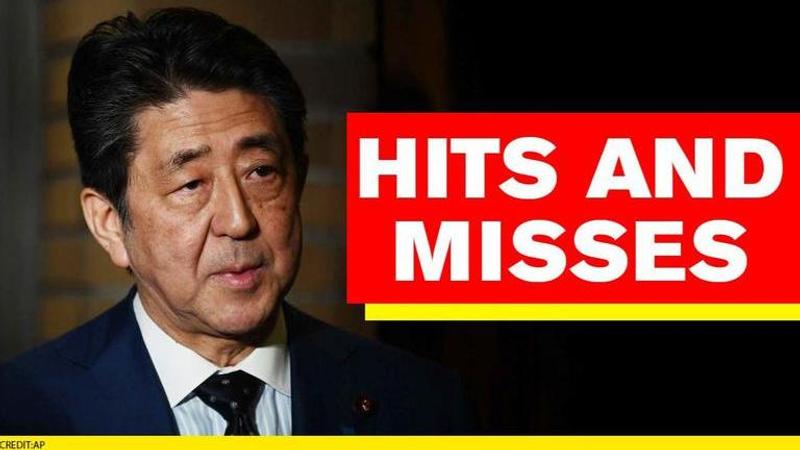Published 18:49 IST, August 28th 2020
Shinzo Abe resigns: Japanese PM's reign known for ‘Abenomics’, political stability
Japanese PM Shinzo Abe announced his resignation on August 28 due to his deteriorating health condition after he suffered a relapse of ulcerative colitis.

Advertisement
Japanese Prime Minister Shinzo Abe announced his resignation on August 28 due to his deteriorating health condition after he suffered a relapse of ulcerative colitis. The intestinal disease had caused trouble to the outgoing PM in the past as he had to resign during his first term as prime minister in 2007.
As Shinzo Abe awaits his successor to take over the reins, he has already become the longest-serving prime minister who headed the Japanese government for over eight years in two terms combined. While COVID-19 response, failed or successful, will be among the highlights of most of the world leaders, the outgoing prime minister became known for his signature economic strategy of "Abenomics", a portmanteau of Abe and economics.
During his second term as Japanese PM, Abe advocated economic policies based on “three arrows” of monetary easing, fiscal stimulus, and structural reforms. The monetary easing from the Bank of Japan and increased government spending helped Abe steer the economy out of deflation but coveted growth remained elusive. The subsequent slowdown in later years raised questions about the effectiveness of his economic strategy.
Shinzo Abe’s return to power in 2012 brought political stability in Japan since the country had been through five prime ministers in as many years. The Liberal Democratic Party (LDP) chief projected his image as a strong, conservative leader with nationalist agenda which often caused trouble with South Korea and China. However, Abe’s critics say that such a long tenure became possible because of weak opposition.
While announcing his resignation, Abe admitted that he failed to introduce the amendment of Article 9 of the Japanese Constitution, one of his most cherished goals. The Japanese PM wanted to write the existence of Japan’s Self-Defense Forces into Article 9 which would have given a constitutional standing to the military.
Diplomatic front
The 65-year-old politician focussed on strengthening ties with traditional allies like the United States, Australia and India, but he also did a balancing act by not letting Japan’s relationship with China sour. He visited Beijing in October 2018 and Chinese President Xi Jinping was also set to visit Japan this year but the coronavirus pandemic forced them to postpone the trip. The recent clampdown on Hong Kong by Japan’s biggest trading partner forced Abe to walk a diplomatic tight rope.
18:49 IST, August 28th 2020




